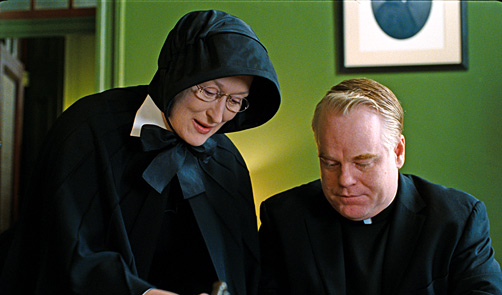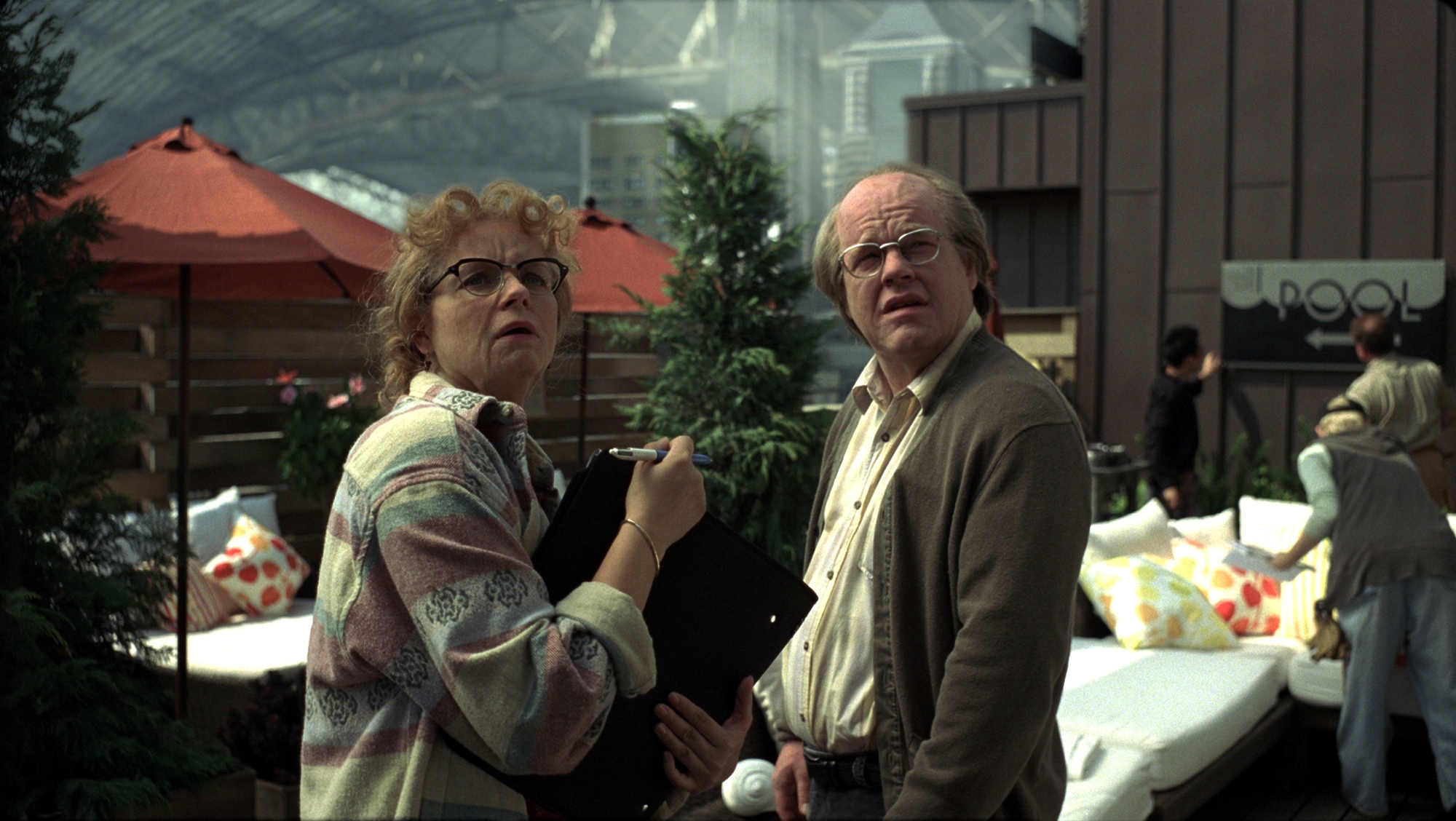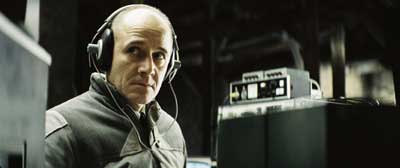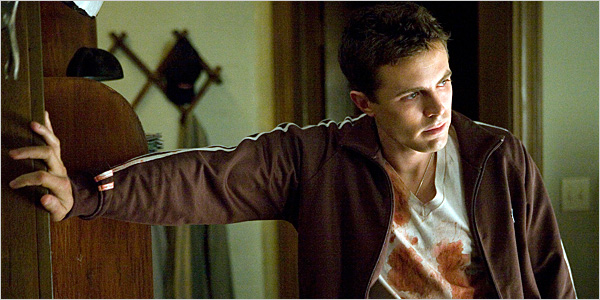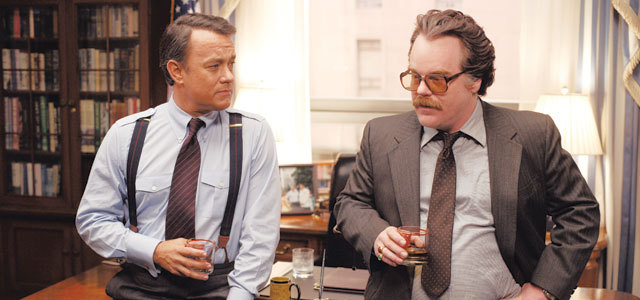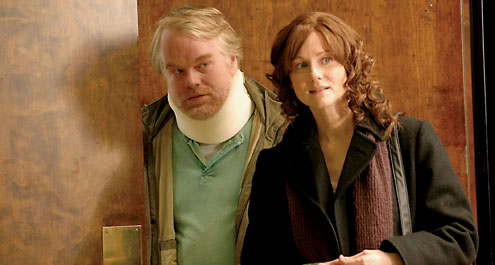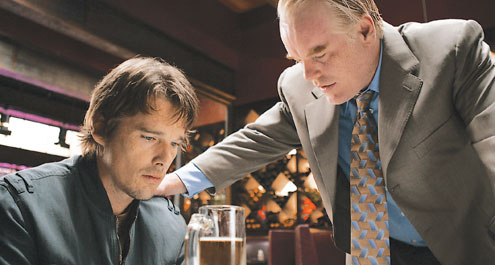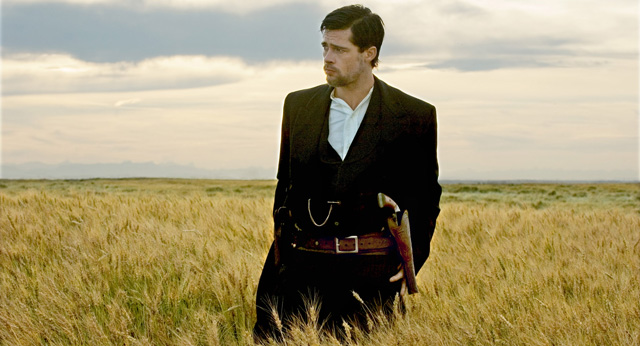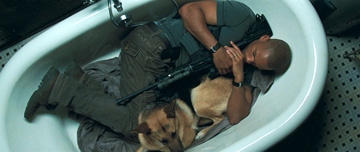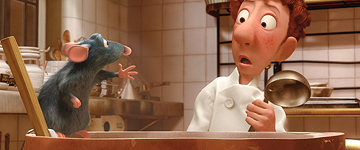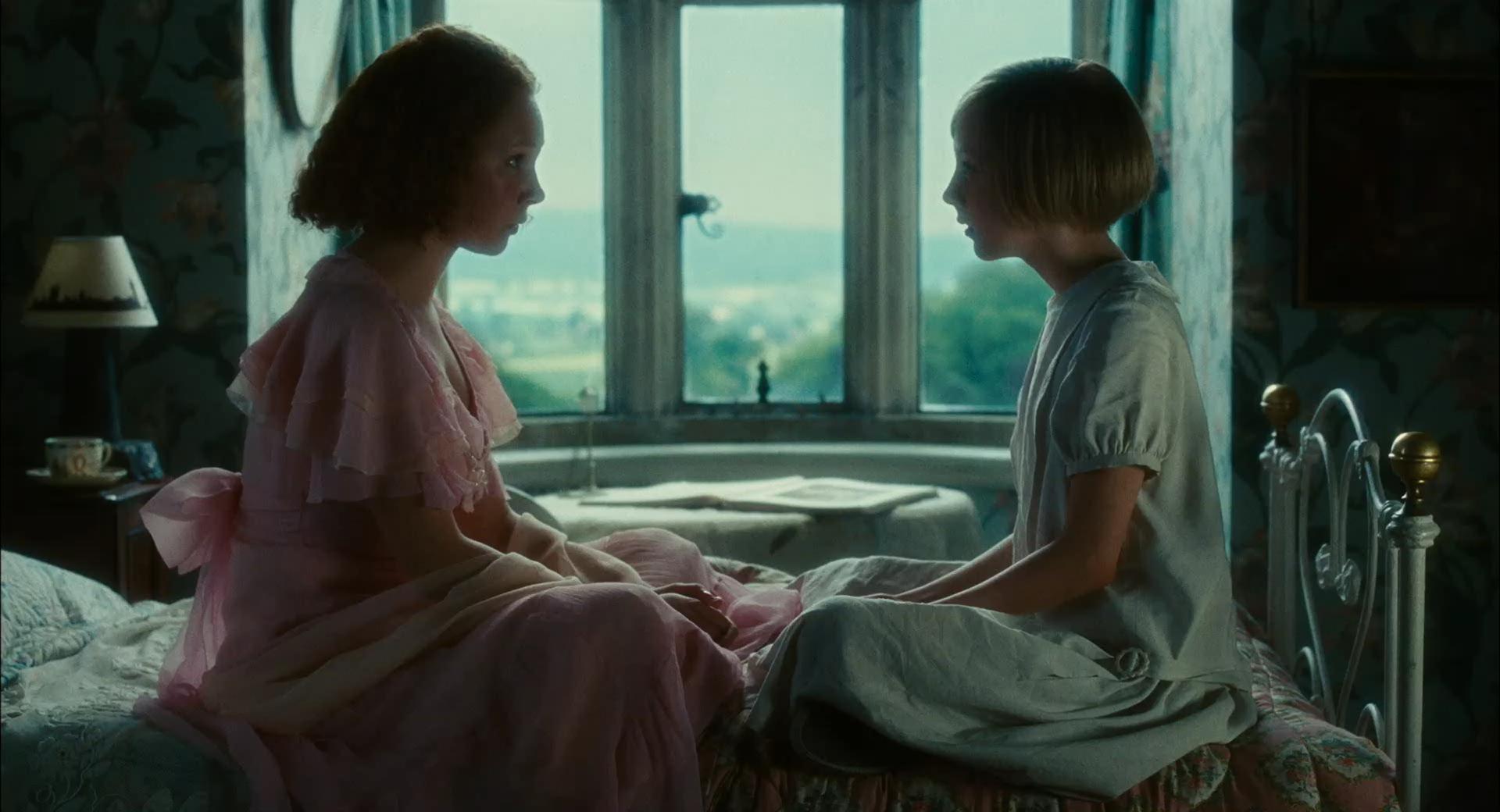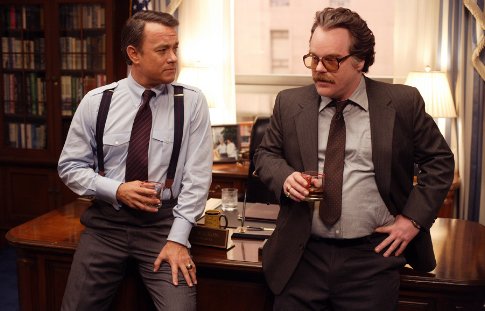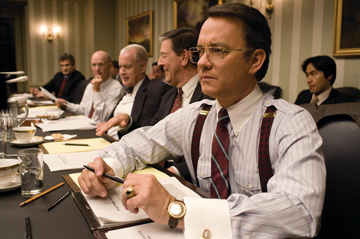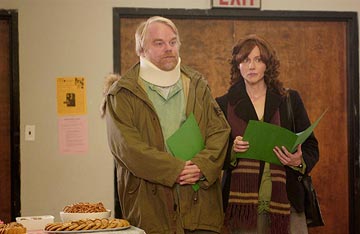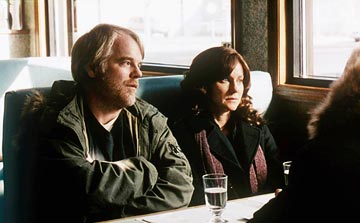Well, now that we’re in the second month of 2009, and since I’m *mostly* caught up on last year’s prestige crop, it seems arguably the last, best time to write up the belated Best of 2008 Movie list. (I did see one more indy film of 2008 Sunday morning, but as it was after my arbitrarily-chosen 1/31 cutoff, it’ll go in next year’s list.) Compiling the reviews this year, it seems my October hunch was correct: For a combination of reasons, I went to the movies a lot less than usual in 2008. (The review count usually clocks in around 45. Last year, I only saw 30 films on the big screen.) And, looking over the release schedule, I see lots of movies I had every intention of viewing — Appaloosa, Be Kind, Rewind, Blindness, Choke, Leatherheads — and never got around to.
At any rate, given what I did see, here’re the best of ’em. And here’s hoping the 2009 list will be more comprehensive. As always, all of the reviews can be found here. (And if a movie title doesn’t link to a full review, it means I caught it on DVD.)
[2000/2001/2002/2003/2004/2005/2006/2007]
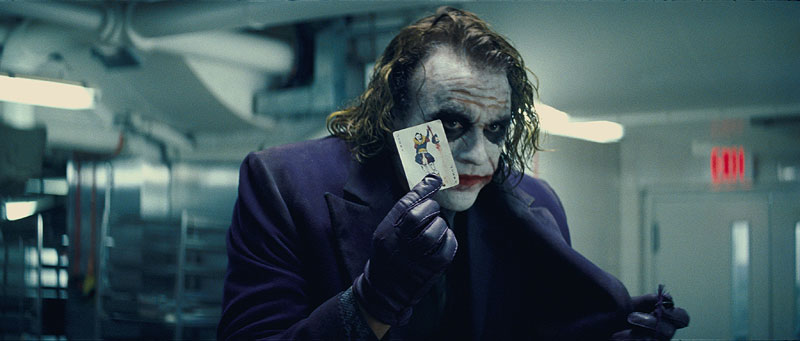
1. The Dark Knight: Yes, it’s the obvious fanboy pick. And, admittedly, TDK had pacing problems — it was herky-jerky at times and the third act felt rushed. Still, in a not-particularly-good year for cinema, Christopher Nolan’s operatic reimagining of the Caped Crusader and his arch-nemesis was far and away the most enjoyable experience i had at the movies in 2008. And if Candidate Obama was America’s own white knight (metaphorically speaking) this past year, Heath Ledger’s Joker was its mischievous, amoral, and misanthropic id. If and when the economic wheels continue to come off in 2009, will stoic selflessness or gleeful anarchy be the order of the day? The battle for Gotham continues, and everybody’s nervously eyeing those detonators. Let’s hope the clown doesn’t get the last laugh.

2. Milk: What with a former community organizer turned “hopemonger” being elected president — while evangelicals, conservatives and sundry Mormons inflicted Proposition 8 on the people of California — Gus Van Sant’s vibrant recounting of the tragedy of Harvey Milk was obviously the timeliest political movie of 2008. But, in a year that saw entirely too much inert Oscar-bait on-screen in its final months, Milk — romantic, passionate, and full of conviction — was also one of the most alive. While it extends some measure of compassion even to its erstwhile villain (Josh Brolin), Milk is a civil-rights saga that harbors no illusions about the forces of intolerance still amongst us, and how far we all still have to go.
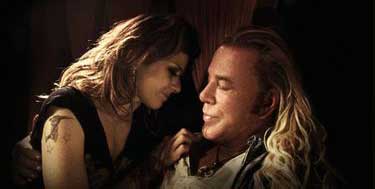
3. The Wrestler: Have you ever seen a one-trick pony in the fields so happy and free? Me neither, to be honest, but Aronofsky’s naturalistic slice-of-life about the twilight days of Randy “the Ram” Ramzinski was likely the next best thing. I don’t know if Mickey Rourke will experience a career resurrection after this performance or not. But he won this match fair and square, and nobody can take it from him.
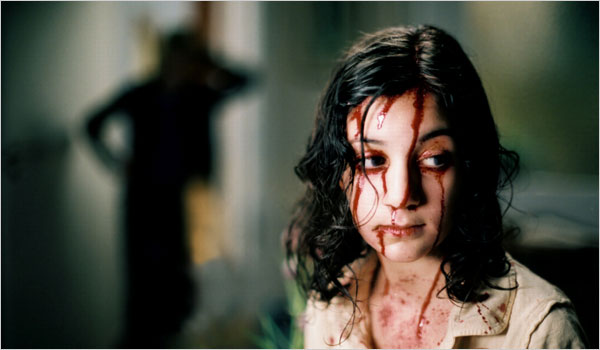
4. Let the Right One In: As if living in public housing in the dead of a Swedish winter wasn’t depressing enough, now there’s a nosferatu to contend with… My Bodyguard by way of Ingmar Bergman and Stephen King, this creepy and unsettling tale of a very unsparkly pre-teen vampyrer will leave bitemarks long after you step out into the light.

5. 4 Months, 3 Weeks, & 2 Days: A 2007 release that made it stateside in 2008, 4 Months, 3 Weeks, & 2 Days is a movie that I probably wouldn’t ever want to watch again. Still, this grim, unrelenting journey through the seedy hotels and sordid back-alleys of Ceaucescu’s Romania is another hard one to shake off. And, tho’ I caught it early on, it remained one of the very best films of the year.

6. WALL-E: If you saw one movie last year about a boy(bot) from the slums meeting — and then improbably wooing — the girl(bot) of his dreams, I really hope it was WALL-E. Hearkening back to quality seventies sci-fi like Silent Running, Andrew Stanton’s robot love story and timely eco-parable is a definite winner, and certainly another jewel in the gem-studded Pixar crown. I just wish it’d stayed in the melancholy, bittersweet key of its first hour, rather than venturing off to the hijinx-filled, interstellar fat farm. Ah well, bring on Up.
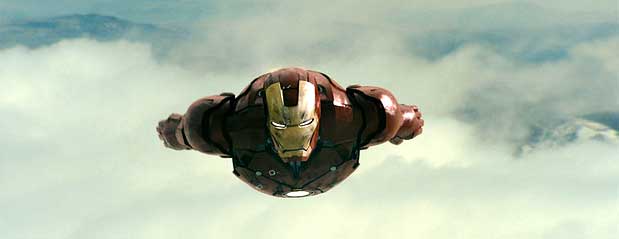
7. Iron Man: Much better than I ever anticipated, Jon Favreau’s (and Robert Downey Jr.’s) Iron Man kicked a summer of superheroes off in grand fashion. In the end, I preferred the gloomy stylings of Gotham in 2008, but there’s definitely something to be said for this rousing, upbeat entrant in the comic movie canon. It delivered on its own terms, and it was a much better tech-fetishizing, boys-and-their-toys type-film than, say, 2007’s Transformers or (I suspect) 2009’s GI Joe. Bonus points for the Dude going all Big Jeff Lebowski on us here…now quit being cheap about the sequel.
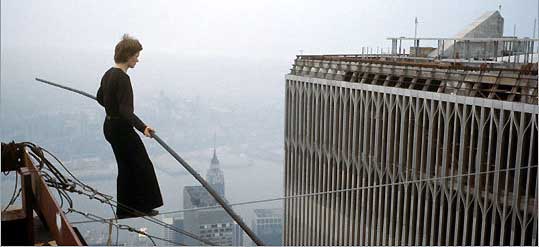
8. Man on Wire: 4:40pm: Two foreign nationals and their American abettors successfully navigate past the guard checkpoint of the World Trade Center’s South Tower. Their fanatical mission: To use the WTC as a symbol to transform the world…through an act of illegal, death-defying performance art. Although it never explicitly mentions 9/11 (of course, it doesn’t need to — the towers themselves do most of the work, and reconstructing its story as a heist does the rest), the stirring documentary Man on Wire, about Phillipe Petit’s 1974 tightrope-walk between the towers, gains most of its resonance from the events of that dark day in 2001.
After seventy minutes or so, just as it seems this unspoken analogy is starting to wear thin, Petit finally steps out onto that ridiculous wire, and Man on Wire takes your breath away. Nothing is permanent, the movie suggests. Not youth, not life, not love, not even those majestic, formidable towers. But some moments — yes, the beautiful ones too — can never be forgotten. (Note: Man on Wire is currently available as a direct download on Netflix.)

9. U2 3D: One of two 2008 films (along with #16) which seemed to suggest the future of the movie-going experience, U2 3D was both a decently rousing concert performance by Dublin’s fab four, and — more importantly — an experimental film which played with an entirely new cinema syntax. Just as students look back on D.W. Griffith films of a century ago as the beginnings of 2D-movie expression, so too might future generations look at this lowly U2 concert and see, in its layering of unrelated images onto one field of vision, when the language of 3D really began to take off. At which point someone might also say, “Man, I wish they’d played ‘So Cruel’ instead of some of these tired old dogs.”
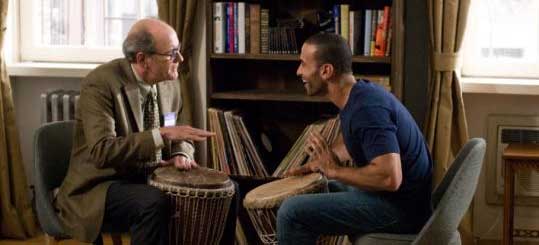
10. The Visitor: I wrote about Tom McCarthy’s The Visitor (which I saw on DVD) some in my Gran Torino review, and my criticism there stands: As with Torino, the central thrust of this story is too Bagger Vance-ish by half. Still, it’s fun to see a likable character actor like Richard Jenkins get his due in a starring role, and he’s really great here. And, if the “magical immigrant” portions of this tale defy reality to some extent, McCarthy and Jenkins’ vision of a life desiccated by years of wallowing in academic purgatory — the humdrum lectures, the recycled syllabi, the mind-numbingly banal conferences, all divorced from any real-world interaction with the issues at hand — is frighteningly plausible.
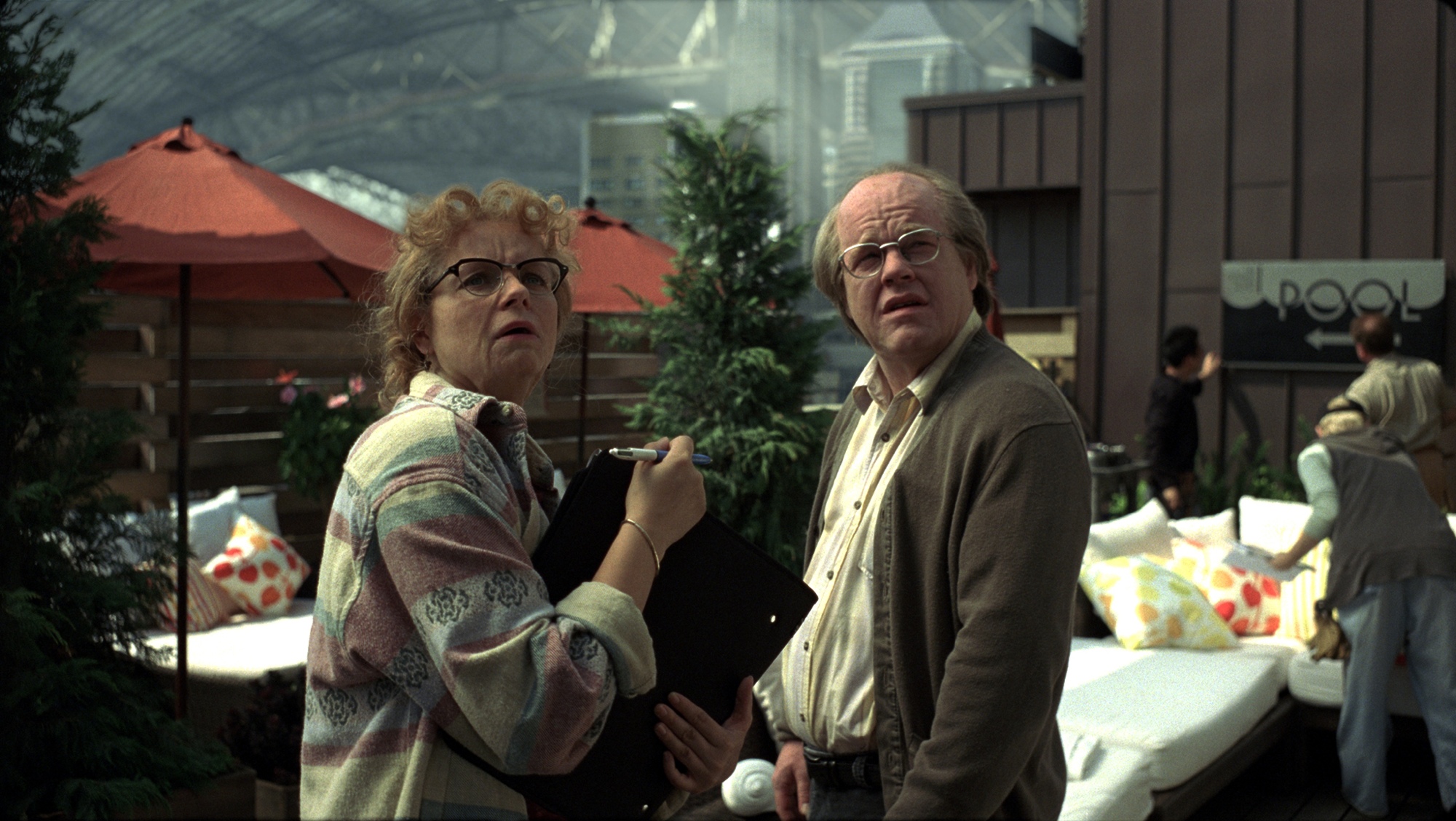
11. Synecdoche, New York: Long on ambition and short on narrative coherence, Charlie Kaufman’s directorial debut is the There Will Be Blood of last year’s crop, in that it’s a film that I think will inspire a phalanx of ardent defenders among movie buffs, who will argue its virtues passionately against all comers. For my own part, I admired this often-bewildering movie more than I actually enjoyed it, and ultimately found it much less engaging than Kaufman’s real magnum opus, Eternal Sunshine of the Spotless Mind. Still, I’m glad I made the attempt, and it’s definitely worth seeing.

12. Frost/Nixon: Two man enter, one man leave! More a sports movie than a political one, Ron Howard and Peter Morgan’s Frost/Nixon is a decently entertaining depiction of two hungry down-and-outers locked in the debater’s version of mortal kombat. That being said, I kinda wish the stakes had seemed higher, or that the substance of the issues at hand — Vietnam, Cambodia, Watergate — had been as foregrounded as the mano-a-mano mechanics of the interview. Plus, that scene where Tricky Dick sweeps the leg? That’s not kosher.

13. Snow Angels: David Gordon Green’s quiet, novelistic Snow Angels is an early-2008 film I caught on DVD only a few weeks ago, and it’s been slowly sneaking up the list ever since. Based on a 1994 book by Stewart O’Nan, the movie depicts the intertwined lives of a small New England community, and recounts the tragic circumstances that lead to two gunshots being fired therein one winter afternoon. (If it sounds like Atom Egoyan’s The Sweet Hereafter, it’s very close in form, content, and melancholy impact.)
In a movie brimming over with quality performances — including (an ever-so-slightly-implausible) Kate Beckinsale, Nicky Katt, Amy Sedaris, and the long-forgotten Griffin Dunne — three actors stand out: Michael Angarano and Olivia Thirlby fall into one of the most honest, believable, and affectation-free high school romances I’ve seen in a movie in ages. And the always-watchable Sam Rockwell sneaks up on you as a perennial loser who tries to be a good guy and just keeps failing at life despite himself. At first not much more than an amiable buffoon as per his usual m.o., Rockwell’s gradual surrender to his demons — note his scenes with his daughter, or in the truck with his dog, or at the bar — gives Snow Angels a haunting resonance that sticks with you.
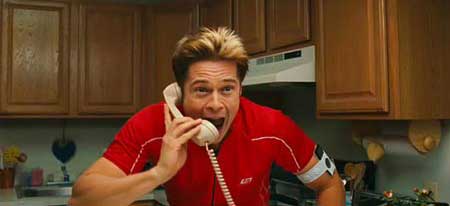
14. Burn After Reading: As I said in the original review, it’s not one of the all-time Coen classics or anything. But even medium-grade Coen tends to offer more delights than most films do in a given year, and the same holds true of their espionage-and-paranoia farce Burn After Reading in 2008. From John Malkovich’s foul-mouthed, (barely-)functioning alcoholic to George Clooney as a (thoroughly goofy) lactose-intolerant bondage enthusiast to, of course, Brad Pitt’s poor, dim-witted Chet, Burn introduced plenty of ridiculous new characters to the brothers’ already-stacked rogues’ gallery. This is one (unlike The Ladykillers) that I’m looking forward to seeing again.

15. Vicky Cristina Barcelona: Another catch-up DVD rental, this was Woody Allen’s good movie last year (as opposed to the woeful Cassandra’s Dream), and a smarter-than-average relationship film (as one might expect from the man behind Husbands and Wives and Annie Hall.) There’re some definitive Allen tics here that take some getting used to in the new environment of Barcelona — a very Woody-ish omniscient voiceover, some Allenesque quips emanating from Scarlett Johannson and the striking Rebecca Hall (late of Frost/Nixon and The Prestige), and, as per Match Point and Scoop, some rather outdated depictions of the class system. (Hall’s fiance, played by Chris Messina of Six Feet Under, is basically a caricature of the boring, born-entitled Ivy League grad, circa 1965.)
Still, if you can get past all that, Vicky Cristina is quite worthwhile. (And, as far as the Oscar buzz goes, I’d say Javier Bardem makes more of an impression here than does Penelope Cruz.) Whether you’re as old as Woody or as young as Vicky and Cristina, the story remains the same: love is a weird, untameable thing, and the heart wants what it wants.
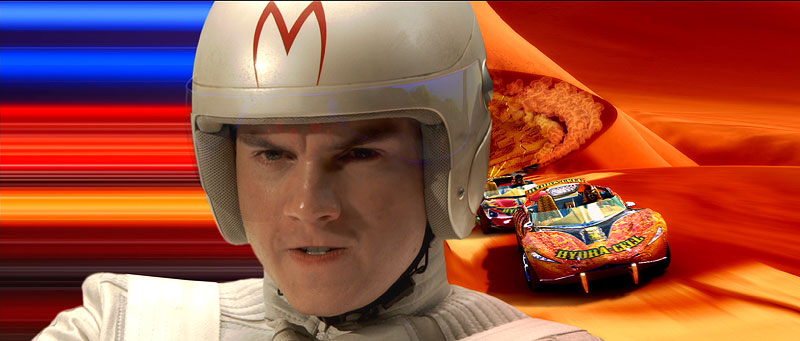
16. Speed Racer: Easily the most unfairly maligned movie of 2008 (and I’m not a Wachowski apologist — I thought Matrix: Revolutions was atrocious), Speed Racer is an amped-up, hypercolorful extravaganza of the senses, and, this side of the original Matrix, one of the more interesting attempts I’ve seen at bringing anime to life. Critics derided it pretty much across the board as loud, gaudy nonsense, but, then as now, I’m not sure what they went in expecting from the film adaptation of a lousy sixties cartoon involving race cars and silly monkeys. This is where some readers might ask: “Um, are you really saying Speed Racer is a better movie than Revolutionary Road?” And I’m saying, yes, it’s much more successful at what it aimed to accomplish, and probably more entertaining to boot. Sure, Racer is a kid’s movie, but so was WALL-E. And, given most of the drek put before the youths today, it’s a darned innovative one. Plus, I’ve seen a lot of filmed laments about quiet-desperation-in-the-suburbs in my day, but for better or worse, in my 34 years of existence, I had never seen anything quite like this.

17. Gran Torino: Alas, Speed Racer, it seems, grew old, got ornery, and began fetishizing his car in the garage instead. Good thing there’re some kindly Hmong next door to pry open that rusty heart with a crowbar! Like The Visitor, Torino suffers from an excess of sentiment when it comes to its depiction of 21st-century immigrants and their salutary impact on old white folks. But, as a cautionary coda to a lifelong career glorifying vigilantism, Eastwood’s Gran Torino has that rusty heart in the right place, at least. And while Eastwood’s Walt Kowalski may be a mean old cuss, Eastwood’s performance here suggests that the old man’s got some tricks in him yet.
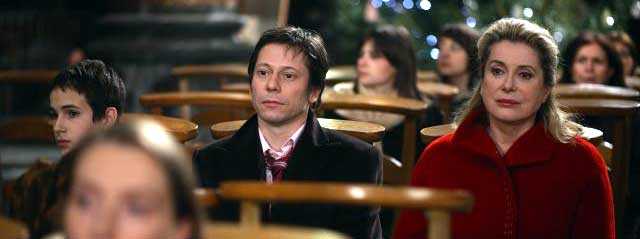
18. A Christmas Tale: I wrote about this movie very recently, so my thoughts on it haven’t changed all that much. A bit pretentious at times, Arnaud Desplechin’s anti-sentimental holiday film has its virtues, most notably Chiara Mastroianni eerily (and probably inadvertently) channeling her father and the elfin Mathieu Amalric wreaking havoc on his long-suffering family whenever possible. It’s a Not-So-Wonderful Life, I guess, but — however aggravating your relatives ’round christmastime — it’s still probably better than the alternative.
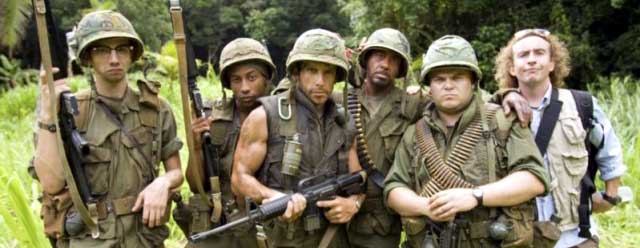
19. Tropic Thunder: Its pleasures were fleeting — I can’t remember very many funny lines at this point — and even somewhat scattershot. (Tom Cruise as Harvey Weinstein by way of a gigantic member was funny for the first ten minutes. Less so after half an hour.) Still, give Tropic Thunder credit. Unlike all too many comedies in recent years, it didn’t try to make us better people — it just went for the laugh, and power to it. And when the most controversial aspect of your movie turns out not to be the white guy in blackface (or, as we all euphemistically tend to put it now, “the dude disguised as another dude“), but the obvious Forrest Gump/Rain Man spoof, I guess you’ve done something right.

20. W: Nowhere near as potent as Stone’s early political forays, JFK and Nixon, W still came close to accomplishing the impossible in 2008: making the out-going president seem a sympathetic figure. I suppose several other films could’ve sat with distinction in this 20-spot — In Bruges or Benjamin Button, perhaps — but none of them would’ve afforded me the opportunity to write these lovely words once more: So long, Dubya.
Honorable Mention: It wasn’t a movie, of course. But 2008 was also the year we bid farewell to The Wire. Be sure to raise a glass, or tip a 40, in respect. (And let’s pray that — this year, despite all that’s come before — a “New Day” really is dawning.)
Most Disappointing: Indiana Jones and the Kingdom of the Crystal Skull
Worth a Rental: The Curious Case of Benjamin Button, In Bruges, Revolutionary Road, Valkyrie
Don’t Bother: Cassandra’s Dream, Cloverfield, The Chronicles of Narnia: Prince Caspian, Doubt, Hellboy II: The Golden Age, The Incredible Hulk, Quantum of Solace, Slumdog Millionaire, Wanted
Best Actor: Mickey Rourke, The Wrestler, Sean Penn, Milk, Richard Jenkins, The Visitor
Best Actress: Anamaria Marinca, 4 Months, 3 Weeks, and 2 Days, Lina Leandersson, Let the Right One In, Rebecca Hall, Vicky Cristina Barcelona
Best Supporting Actor: Heath Ledger, The Dark Knight, Josh Brolin, Milk, Jeff Bridges, Iron Man, Sam Rockwell, Snow Angels
Best Supporting Actress: Marisa Tomei, The Wrestler, Tilda Swinton, The Curious Case of Benjamin Button
Unseen: Appaloosa, Australia, The Bank Job, Be Kind, Rewind, Blindness, Body of Lies, Cadillac Records, Changeling, Choke, The Class, Defiance, Eagle Eye, The Fall, Funny Games, Hancock, Happy Go Lucky, Harold and Kumar Escape from Guantanamo, Leatherheads, I Loved You So Long, The Lucky Ones, Miracle at St. Anna, Pineapple Express, Rambo, The Reader, Redbelt, RockNRolla, The Spirit, Traitor, Waltz with Bashir
- A Good Year For:
- Billionaire Do-Gooders (The Dark Knight, Iron Man)
- Lonely Old White Guys (Gran Torino, The Visitor, The Wrestler)
- Magical Immigrants (Gran Torino, The Visitor)
- Rebecca Hall (Vicky Christina Barcelona, Frost/Nixon)
- Richard Jenkins (The Visitor, Burn after Reading)
- Robert Downey, Jr. (Iron Man, Tropic Thunder)
- Romance at the Junkyard (WALL-E, Slumdog Millionaire)
- Sam Rockwell (Choke, Frost/Nixon, Snow Angels)
- Teenage Vampirism (Let the Right One In, Twilight)
- Tosca (Quantum of Solace, Milk)
- A Bad Year For:
- GOP Ex-Presidents (Frost/Nixon, W)
- Political Do-Gooders (The Dark Knight, Milk)
- Pulp Heroes (The Spirit)
- Vigilantism without Remorse (Gran Torino, The Dark Knight)
- Would-Be Assassins (Valkyrie, Wanted)

Hrm.

